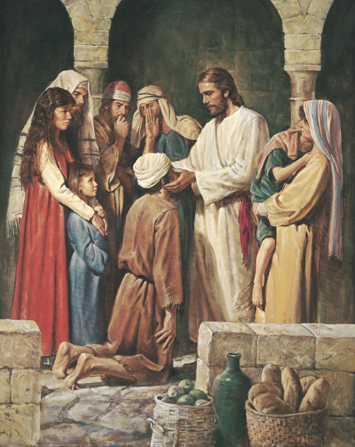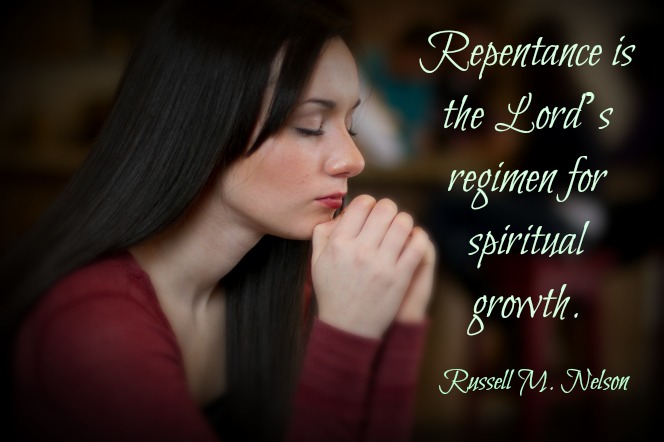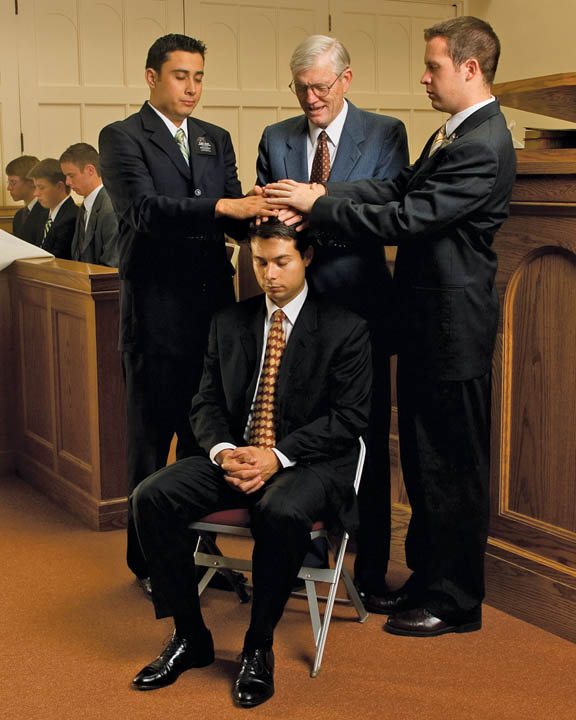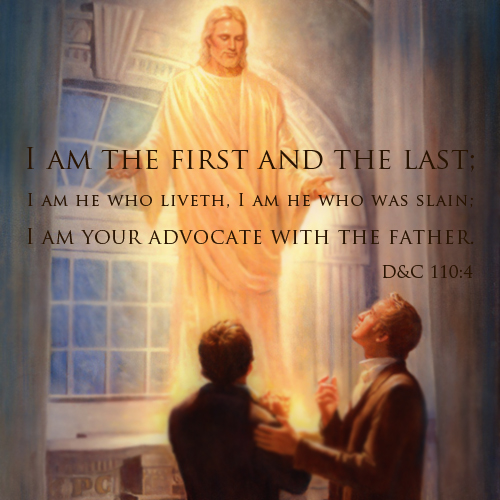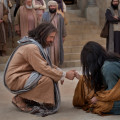2016 will be known as the Year of Injuries in my household. It started in December of 2015 when the older of my two daughters hit her head skiing—twice—and got a concussion. Her headaches didn’t fully stop until school ended in June. Then summer started with a bang. Within 2 or 3 weeks, we had a broken arm and another concussion. My other daughter broke her arm jumping on a trampoline with a pogo stick in her hand (the goal was to jump on the trampoline with the pogo stick…). And then my oldest son was at a trampoline park doing flips and tricks in preparation for ski season, and he jumped from the trampoline into a foam pit and whacked his head on the side of the foam pit, knocking him out for a few seconds and leaving him with what I consider a fairly serious concussion.
Luckily, these injuries weren’t more serious. But each of them had something in common: you couldn’t see them with the naked eye. The effects were apparent, but the injuries weren’t. And it reminded me of the injury that we do to our spirits when we sin. The world portrays serious sin—such as adultery, premarital sex, etc.—as having no consequences. After all, you can’t see the spiritual injury. But it’s there. When my daughter broke her arm, there was little swelling. The only sign that something was wrong was that she wasn’t acting like herself. Instead of screaming in pain and crying, she was pale and quiet and didn’t want to move. It took a mother’s insight to see the change, and then I knew that I needed to take her to the emergency room. It is the same way with our spirits. It may not be apparent to others that we have sustained spiritual injuries due to sin, but the Father of our spirits—our Heavenly Father—can see them. And in His loving concern for us, He has provided a Spiritual Physician for us: the Savior, Jesus Christ. Through His Son, Jesus Christ, our Heavenly Father has given us not only the tools to avoid sin but also the healing balm that we can use to heal us, as well. When we understand this, we gain a greater appreciation for the Savior’s role as the Great Physician of our spirits—and how much He loves each one of us.
The Savior— the Great Spiritual Physician
When Jesus Christ was on the earth, He walked, talked, preached and ate among the least of the people as well as the greatest. The scriptures teach:
And it came to pass, that, as Jesus sat at meat in his house, many publicans and sinners sat also together with Jesus and his disciples: for there were many, and they followed him.
And when the scribes and Pharisees saw him eat with publicans and sinners, they said unto his disciples, How is it that he eateth and drinketh with publicans and sinners?
When Jesus heard it, he saith unto them, They that are whole have no need of the physician, but they that are sick: I came not to call the righteous, but sinners to repentance. (Mark 2:15-17)
About whom was the Savior speaking? He was speaking of all of us. President Dieter F. Uchtdorf taught,
Because we have all “sinned, and come short of the glory of God” and because “there cannot any unclean thing enter into the kingdom of God,” every one of us is unworthy to return to God’s presence.
Even if we were to serve God with our whole souls, it is not enough, for we would still be “unprofitable servants.” We cannot earn our way into heaven; the demands of justice stand as a barrier, which we are powerless to overcome on our own.
This is where the Savior and His love come into our lives—with the Atonement. President Uchtdorf continued,
But all is not lost. The grace of God is our great and everlasting hope.
Through the sacrifice of Jesus Christ, the plan of mercy appeases the demands of justice “and [brings] about means unto men that they may have faith unto repentance.”
Our sins, though they may be as scarlet, can become white as snow. Because our beloved Savior “gave himself a ransom for all,” an entrance into His everlasting kingdom is provided unto us.
The gate is unlocked!
This, however, is just the beginning. God does not want us to be merely clean. He desires us to be exalted, as He is. President Uchtdorf said,
But the grace of God does not merely restore us to our previous innocent state. If salvation means only erasing our mistakes and sins, then salvation—as wonderful as it is—does not fulfill the Father’s aspirations for us. His aim is much higher: He wants His sons and daughters to become like Him.
With the gift of God’s grace, the path of discipleship does not lead backward; it leads upward.
Thus, just as our family doctor is here to help us to healthy—not just here to help us overcome our ailments—Jesus Christ’s role with our spiritual health is the same. He is our spiritual primary care physician who offers us well-child (or well-person) checkups as well as the emergency room doctor who offers us aid for our more serious spiritual injuries. He is “the way, the truth and the light.” He came to earth to set the perfect example that we could follow back to the presence of our Heavenly Father. And through His infinite Atonement, we can repent from our sins when we fall short of the grace of God.
A Spiritually Healthy Life
Because He is the great spiritual physician, Jesus Christ taught us by example how to lead a spiritually healthy life. President Henry B. Eyring taught,
We believe that through living the gospel of Jesus Christ we can become like the Savior, who is perfect. Considering the attributes of Jesus Christ should quash the pride of the self-satisfied person who thinks he or she has no need to improve. And even the most humble person can take hope in the invitation to become like the Savior.
… How that wonderful transformation will happen is captured for me in a song written for children.
The song to which President Eyring is referring is called “I’m Trying to Be Like Jesus,” and the words are:
I’m trying to be like Jesus; I’m following in his ways.
I’m trying to love as he did, in all that I do and say.
At times I am tempted to make a wrong choice,
But I try to listen as the still small voice whispers,
“Love one another as Jesus loves you.
Try to show kindness in all that you do.
Be gentle and loving in deed and in thought,
For these are the things Jesus taught.”
Describing a time when he had seen children singing this song, President Eyring said,
It seemed to me that they were not just singing; they were declaring their determination. Jesus Christ was their example. To be like Him was their fixed goal. And their eager looks and their shining eyes convinced me that they had no doubts. They expected to succeed. They believed that the instruction of the Savior to be perfect was not a hope but a command. And they were sure He had prepared the way.
That determination and confidence can and must be in the heart of every Latter-day Saint. The Savior has prepared the way through His Atonement and His example.
One of the ways to lead a spiritually healthy life is by obeying the commandments of God. Elder Dallin H. Oaks taught,
Throughout His ministry Jesus gave commandments. And He taught, “If ye love me, keep my commandments” (John 14:15; see also verses 21, 23). He affirmed that keeping His commandments would require His followers to leave what He called “that which is highly esteemed among men” (Luke 16:15) and “the tradition of men” (Mark 7:8; see also verse 13). …
Following Christ is not a casual or occasional practice but a continuous commitment and way of life that applies at all times and in all places.
Striving to live a spiritually healthy life requires work. Not only adherence to the commandments but also studying the teachings of Jesus Christ and His commandments as well as praying. We can’t do better if we don’t know how—and we learn by studying His doctrines.
Repentance and Change
Living a spiritually healthy life does not mean that we will be perfect. We all fall short of the glory of God and have need of repentance. Some sins are greater than others, but they are all sins. President Russell M. Nelson said,
The doctrine of repentance is much broader than a dictionary’s definition. … When Jesus said “repent,” He asked us to change—to change our mind, knowledge, and spirit—even our breath. A prophet explained that such a change in one’s breath is to breathe with grateful acknowledgment of Him who grants each breath. … Yes, the Lord has commanded us to repent, to change our ways, to come unto Him, and be more like Him. This requires a total change.
Repentance allows us to daily and repeatedly turn ourselves to God and strive to become more like Him. Elder Richard G. Scott said,
Repentance is not optional. An angel commanded Adam to “repent and call upon God in the name of the Son forevermore.” Each one of us is commanded to both repent and to call upon God continually throughout life. That pattern allows each day to be an unspoiled page in the book of life, a new, fresh opportunity. We are given the rejuvenating privilege of overcoming mistakes of commission or omission, be they small or profoundly serious. Full repentance results in forgiveness with spiritual renewal. One can feel the cleansing, the purity, the freshness that accompanies sincere repentance at any time in life. …
Why have our Father and His Son commanded us to repent? Because they love us. They know all of us will violate eternal laws. Whether they be small or large, justice requires that every broken law be satisfied to retain the promise of joy in this life and the privilege of returning to Father in Heaven.
Thus, repenting and turning our will more in line with the Savior’s is the only way to qualify ourselves to live with our Heavenly Father again.
Repentance—a Cure for Spiritual Ailments
Like my children whose physical ailments required medical attention and time to heal, some spiritual ailments require more spiritual attention and work to heal. Elder Scott taught,
Are you taking full advantage of the redeeming power of repentance in your life so that you can have greater peace and joy? Feelings of turmoil and despondency often signal a need for repentance. Also the lack of the spiritual direction you seek in your life could result from broken laws. If needed, full repentance will put your life together. It will solve all of the complex spiritual pains that come from transgression. But in this life it cannot remedy some of the physical consequences that can occur from serious sin. Be wise and consistently live well within the boundaries of righteousness defined by the Lord.
We live in a world where sin is so rampant that it has become the norm, in many cases. This is where things can get tricky for those who are striving to follow the Savior—and it can be difficult to know which side is right. Elder D. Todd Christofferson said,
… We live in a time not long before the advent of Jesus Christ—… the time of preparation for His Second Coming. And … the message of repentance is often not welcomed. Some profess that if there is a God, He makes no real demands upon us (see Alma 18:5). Others maintain that a loving God forgives all sin based on simple confession, or if there actually is a punishment for sin, “God will beat us with a few stripes, and at last we shall be saved in the kingdom of God” (2 Nephi 28:8). Others … deny the very existence of Christ and any such thing as sin. Their doctrine is that values, standards, and even truth are all relative. Thus, whatever one feels is right for him or her cannot be judged by others to be wrong or sinful.
On the surface such philosophies seem appealing because they give us license to indulge any appetite or desire without concern for consequences. By using the[se] teachings …, we can rationalize and justify anything. When prophets come crying repentance, it “throws cold water on the party.” But in reality the prophetic call should be received with joy. Without repentance, there is no real progress or improvement in life. Pretending there is no sin does not lessen its burden and pain. Suffering for sin does not by itself change anything for the better. Only repentance leads to the sunlit uplands of a better life. And, of course, only through repentance do we gain access to the atoning grace of Jesus Christ and salvation. Repentance is a divine gift, and there should be a smile on our faces when we speak of it. It points us to freedom, confidence, and peace. Rather than interrupting the celebration, the gift of repentance is the cause for true celebration.
Adhering to these philosophies of the world can lead to serious sins. How can we know if we have fallen prey to false teachings or just gave into temptations? President Boyd K. Packer taught,
Every one of us has at least tasted the pain of conscience which follows our mistakes. … All of us sometime, and some of us much of the time, suffer remorse of conscience from things we did wrong or things left undone. That feeling of guilt is to the spirit what pain is to the physical body.
But guilt can be harder to bear than physical pain. Physical pain is nature’s warning system that signals something needs to be changed or cleansed or treated, perhaps even removed by surgery. Guilt, the pain of our conscience, cannot be healed the same way.
If you are burdened with depressing feelings of guilt or disappointment, of failure or shame, there is a cure. …
Regardless of the sin or spiritual ailment, repentance is the cure. True repentance requires specific steps on our part. President Nelson said,
What does it mean to repent? We begin with a dictionary’s definition that to repent is “to turn from sin … to feel sorrow [and] regret.” To repent from sin is not easy. But the prize is worth the price. Repentance needs to be done one step at a time. Humble prayer will facilitate each essential step. As prerequisites to forgiveness, there must first be recognition, remorse, then confession. “By this ye may know if a man repenteth of his sins—behold, he will confess them and forsake them.” Confession is to be made to the person who has been wronged. Confession should be sincere and not merely an admission of guilt after proof is evident. If many persons have been offended, confession should be made to all offended parties. Acts that may affect one’s standing in the Church or the right to its privileges should be confessed promptly to the bishop, whom the Lord has called as a common judge in Israel.
The next step is restitution—to repair damage done—if possible. Then come steps to resolve to do better and refrain from relapse—to repent “with full purpose of heart.” Thanks to the ransom paid by the Atonement of Jesus Christ, full forgiveness is given to the sinner who repents and remains free from sin.
The Healing Atonement of Jesus Christ
Jesus Christ is the spiritual physician because we can find healing and peace in His infinite Atonement. Sometimes we think that our sins are so egregious that we are beyond all hope. President Uchtdorf said,
Sin is the willful transgression of divine law. The Atonement of Jesus Christ is the gift of God to His children to correct and overcome the consequences of sin. God loves all of His children, and He will never cease to love and to hope for us. The plan of our Heavenly Father is clear, and His promises are great: “For God sent not his Son into the world to condemn the world; but that the world … might be saved” (John 3:17).
Christ came to save us. If we have taken a wrong course, the Atonement of Jesus Christ can give us the assurance that sin is not a point of no return. A safe return is possible if we will follow God’s plan for our salvation.
Once we have followed the steps of repentance and changed our ways, we can find the peace that we seek. Sometimes, however, we hold onto our guilt unnecessarily. President Packer taught,
For some reason, we think the Atonement of Christ applies only at the end of mortal life to redemption from the Fall, from spiritual death. It is much more than that. It is an ever-present power to call upon in everyday life. When we are racked or harrowed up or tormented by guilt or burdened with grief, He can heal us. While we do not fully understand how the Atonement of Christ was made, we can experience “the peace of God, which passeth all understanding.”
The gospel plan is the “great plan of happiness.” It is contrary to the nature of God and contrary to the very nature of man to find happiness in sin. “Wickedness never was happiness.”
But through repentance, we can let go of our guilt. President Packer explained,
We all make mistakes. Sometimes we harm ourselves and seriously injure others in ways that we alone cannot repair. We break things that we alone cannot fix. It is then in our nature to feel guilt and humiliation and suffering, which we alone cannot cure. That is when the healing power of the Atonement will help. …
If Christ had not made His Atonement, the penalties for mistakes would be added one on the other. Life would be hopeless. But He willingly sacrificed in order that we may be redeemed. And He said, “Behold, he who has repented of his sins, the same is forgiven, and I, the Lord, remember them no more.” …
It is through the Atonement of Jesus Christ that repentance is possible. We must do our part, but we can be healed from our spiritual ailments through the power of the Great Physician. Elder Packer said,
The Atonement has practical, personal, everyday value; apply it in your life. It can be activated with so simple a beginning as prayer. You will not thereafter be free from trouble and mistakes but can erase the guilt through repentance and be at peace.

